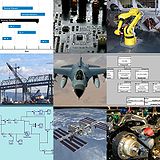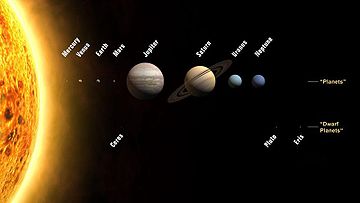Portal:Systems science
The systems science portal
Systems science is an interdisciplinary field that studies the nature of systems—from simple to complex—in nature, society, cognition, engineering, technology and science itself. To systems scientists, the world can be understood as a system of systems. The field aims to develop interdisciplinary foundations that are applicable in a variety of areas, such as psychology, biology, medicine, communication, business management, engineering, and social sciences.
Systems science covers formal sciences such as complex systems, cybernetics, dynamical systems theory, information theory, linguistics or systems theory. It has applications in the field of the natural and social sciences and engineering, such as control theory, operations research, social systems theory, systems biology, system dynamics, human factors, systems ecology, systems engineering and systems psychology. Themes commonly stressed in system science are (a) holistic view, (b) interaction between a system and its embedding environment, and (c) complex (often subtle) trajectories of dynamic behavior that sometimes are stable (and thus reinforcing), while at various 'boundary conditions' can become wildly unstable (and thus destructive). Concerns about Earth-scale biosphere/geosphere dynamics is an example of the nature of problems to which systems science seeks to contribute meaningful insights.
Selected article
Systems engineering is an interdisciplinary field of engineering, that focuses on the development and organization of complex artificial systems. Systems engineering is defined by INCOSE as "a branch of engineering whose responsibility is creating and executing an interdisciplinary process to ensure that customer and stakeholder's needs are satisfied in a high quality, trustworthy, cost efficient and schedule compliant manner throughout a system's entire life cycle, from development to operation to disposal. This process is usually comprised of the following seven tasks: State the problem, Investigate alternatives, Model the system, Integrate, Launch the system, Assess performance, and Re-evaluate. The systems engineering process is not sequential: the tasks are performed in a parallel and iterative manner."
Systems engineering techniques are used in complex projects: from spacecraft to chip design, from robotics to creating large software products to building bridges, Systems engineering uses a host of tools that include modeling & simulation, requirements analysis, and scheduling to manage complexity.
Selected image
Planets and dwarf planets of the Solar System; while the sizes are to scale, the relative distances from the Sun are not.
Selected systems scientist
Margaret Mead (December 16, 1901, Philadelphia – November 15, 1978, New York City) was an American cultural anthropologist who was frequently a featured writer and speaker in the mass media throughout the '60s and '70s as a populariser of the insights of anthropology into modern American and western life but also a respected, if controversial, academic anthropologist.
Her reports as to the purportedly healthy attitude towards sex in South Pacific and Southeast Asian traditional cultures amply informed the '60s "sexual revolution" and it was only at the end of her life and career that her propositions were – albeit controversially – challenged by a maverick fellow anthropologist and literate members of societies she had long before studied and reported on. Mead was a champion of broadened sexual mores within a context of traditional western religious life.
WikiProjects
Did you know
- ...that systems art is an art movement from the 1960s influenced by systems theory, which reflects on natural systems, social systems and social signs of the art world itself?
- ...that a successful experimental system must be stable and reproducible enough for scientists to make sense of the system's behavior, but unpredictable enough that it can produce useful results?
- ... that the anthropologist, linguist, and cyberneticist Gregory Bateson's most noted writings are Steps to an Ecology of Mind (1972) and Mind and Nature (1980).
- ... that a multi-agent system (MAS) is a system composed of multiple interacting intelligent agents, which can be used to solve problems which are impossible for monolithic system to solve.
- ... that the American systems scientist John Nelson Warfield found systems science to consist of a hierarchy of sciences.
- Beginning at the base, with a science of description,
- continuing vertically with a science of design,
- then a science of complexity,
- and next a science of action, called "Interactive management".
- ... that self-organization is a process of attraction and repulsion in which the internal organization of a system, normally an open system, increases in complexity without being guided or managed by an outside source?
Subcategories
- Related fields
- History of ideas
- science
- technology
- Philosophy of science
Systems science topics
Things you can do
- Help out by participating in the Wikiproject Systems or join the discussion.
Associated Wikimedia



